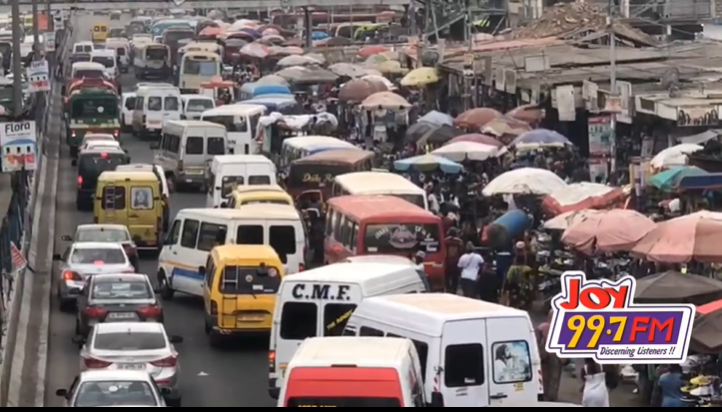Many children in private basic schools in Ghanaian attend school using vehicles, as they mostly reside in areas far from their schools. Overloading in school buses has, however, become a major concern for the school pupils.
According to findings of research by some researchers from Komfo Anokye Teaching Hospital (KATH) and the Kwame Nkrumah University of Science and Technology (KNUST), 100 per cent of the respondents revealed overloading in their buses.
Observation and counting of pupils who alight from their school buses in the morning also showed huge number pupils as compared to the number of seats in the buses.
School children especially the elderly ones revealed how tired they become when they get to school by carrying the younger ones on their laps.
The research aimed at assessing the mode of transporting school children to and from school and to provide empirical evidence on the experiences of school children in school buses. This was solely conducted on private basic schools since the school bus system has been adopted by the private schools as a means of transporting.
The researchers, led by Aaron Kwasi Nartey, a research Fellow with the Sickle Pan African Research Consortium (SPARCO) of the Komfo Anokye Teaching Hospital selected one school from each of the 30 circuits of the Ghana Education Service in the Kumasi Metro, 500 school children in upper primary and Junior High Schools were further randomly selected from the 30 schools for the interviews.
The study revealed that, school children were mostly transported in buses, and other means such as trotro, taxi and private car.
“Response by School Authorities revealed that 43.8 per cent of schools of schools use ‘Bus Only’ to transport school children, followed by ‘Others’ (trotro, private car taxi and tricycle) which scored 21.9 per cent, then Mini-bus Only 18.8 per cent, followed by schools which have both Bus and other scoring 9.4 per cent and finally schools which uses Bus, minibus and other scoring 6.2 per cent”
“Buses recorded the highest because most schools in the study own bus(es) for transporting their school children. Those who do not have at all or those whose bus(es) are not enough for their pupils have outsourced it to commercial drivers or transport owners who also uses bus, minibus or trotro for transporting the children,” the report stated.
The study also revealed that schools that have ‘one bus’ were higher than the schools with ‘No’ or ‘More than one bus’.
The researchers recommend monitoring to ensure school pupils enjoy a safe and comfortable transportation.
“The need for strict monitoring and concerted stakeholder involvement for safe, effective and convenient transport were suggested as some critical way of improving the mode of transporting school children to and from school,” they recommended.
The Research was funded by Ghana College of Physicians and Surgeons (GCPS) and AO Alliance Foundation
Latest Stories
-
ORAL is corruption CCTV – Ablakwa
24 seconds -
Rising bond yields point to fiscal challenges for sovereigns – Fitch
10 minutes -
Otto Addo is not the right man for the Black Stars – Osei Palmer
23 minutes -
ORAL operation: I receive threats daily – Okudzeto Ablakwa
28 minutes -
Scrap e-levy, betting taxes, but don’t introduce new ones through back door – Gideon Boako
36 minutes -
Gov’t revokes appointment of MIIF CEO
37 minutes -
Gold, cocoa prices to surge in 2025, but crude oil to tumble – Report
43 minutes -
GPL: Kotoko’s Emmanuel Kotei suffers ACL injury, set to miss rest of the season
44 minutes -
Hollywood actress, Dalyce Curry’s body found burnt in Los Angeles home amid wildfires
53 minutes -
‘Gospel Musician’ arrested with decapitated head
1 hour -
Nii Lante Vanderpuye can ‘break unscrupulous cartel’ as Sports Minister – Boxing Promoter
1 hour -
How production of traditional mat can serve as gateway to economic growth in South Tongu
2 hours -
Africa has a new agrifood systems strategy and accompanying commitments
2 hours -
School Feeding Caterers directed to resume service as schools reopen
3 hours -
The Inconvenient Truth: When We Sink Our Own Ship, We All Drown – A call for Collective Responsibility and Accountability
4 hours

